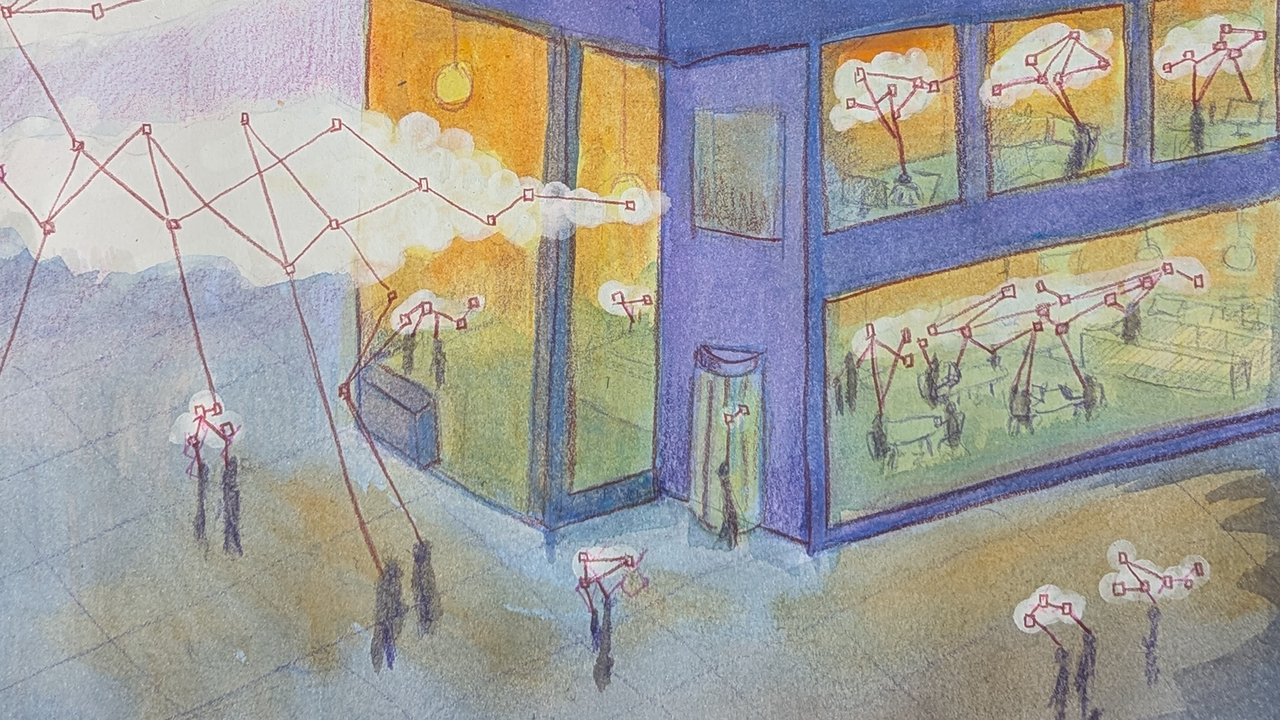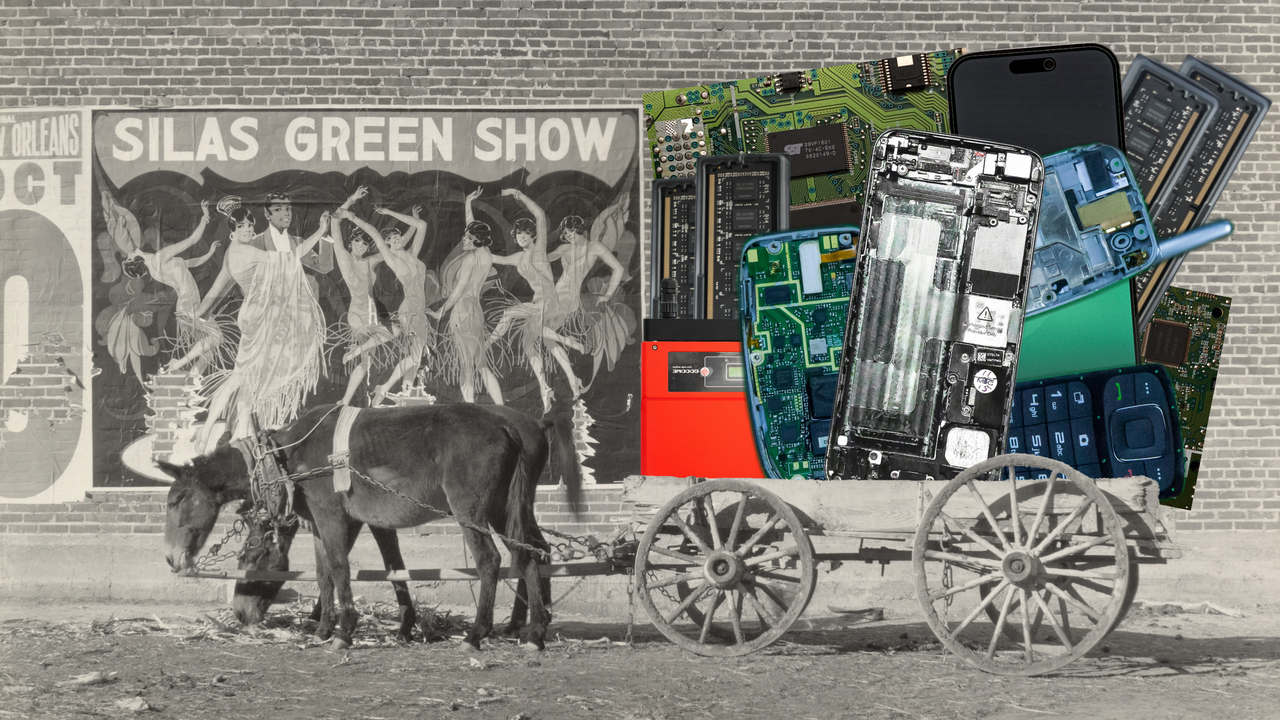It’s YOU!
Are you the lucky AI lead in your organisation? How to choose, and support, the right person or people to lead your AI journey

Who should be your AI lead?
Across all sectors, the idea of appointing a nominated person to lead on AI is becoming increasingly common. We see it with many of our clients, and Government guidance, major consultancy reports and sector bodies all say the same: organisations need someone who can coordinate AI activity, link it to strategy, and keep an eye on risks and opportunities.
But the reality inside small organisations — whether charities, social enterprises or SMEs — looks very different. Most don't have a dedicated “AI lead” role. Instead, someone steps forward (or is nudged forward) because they’re curious, capable, or simply the person everyone else turns to.
Over the past year, we’ve worked with a wide range of organisations navigating this early stage of their AI journey. And we’ve seen people in all sorts of different roles find themselves wearing the AI lead hat, some with more success than others.
So we thought we’d share some of our experiences. None are precise, but all are based on real world observations of people leading AI change. You might recognise yourself — or your colleagues — in one or more of these.
The CEO or Managing Director
Why they end up here: They see AI as strategically important, and their involvement guarantees organisational attention.
What makes them great for the role? They give the AI approach clear authority and influence, and they find it easy to align AI work with wider organisational priorities, and take swift decisions about investment/change
Why might they find it difficult? Time is scarce, so momentum can dip between focused sessions. Without concerted support from others, progress can be sporadic and reactive.
Support they need: Someone who can help turn ambition into structure, and keep activity moving day-to-day.
The Person Who Uses ChatGPT the Most
Why they end up here: They’ve experimented early, see what’s possible, and others come to them for advice.
What makes them great for the role? Enthusiastic, knowledgeable, and great at demystifying AI for others. Able to spot quick wins that build confidence.
Why might they find it difficult? Can lack senior influence, which makes broader organisational adoption harder. May struggle to engage with more sceptical colleagues.
Support they need: Senior sponsorship and a framework that turns personal enthusiasm into organisational capability.
The IT Lead
Why they end up here: They are already handling systems, data, and security — and become the natural go-to for AI questions.
What makes them great for the role? Good at governance, data security and risk mitigation. Most likely to be able to quickly audit AI tools in the organisation. Often have the ear of leadership when it comes to technology decisions.
Why might they find it difficult? Could view AI primarily through a risk lens. May be less connected to frontline processes or service opportunities, making it harder to spot use cases and drive real value.
Support they need: Partnership with colleagues who understand organisational context and user needs.
The Organisational Change or Transformation Lead
Why they end up here: They have a holistic view of how the organisation works and how change actually happens.
What makes them great for the role? Strong understanding of culture, workflows and adoption. Skilled at bringing people with them and embedding new ways of working.
Why might they find it difficult? Needs strong leadership backing to prioritise this work. Can be stretched thin across multiple change initiatives.
Support they need: Space, sponsorship and clarity of mandate — this is often the strongest place to anchor AI leadership.
The Comms and Marketing Lead
Why they end up here: AI tools are transforming content creation, so they tend to be early adopters.
What makes them great for the role? Hands-on, practical and comfortable experimenting. Good at helping colleagues see simple, accessible applications.
Why might they find it difficult? Could be perceived as tactical, limiting strategic influence. Risk of remaining in “content-only” territory.
Support they need: A way into the broader organisational conversation, especially around service and operational use.
The Data Person
Why they end up here: AI naturally lands near the people responsible for reporting, insight and data management.
What makes them great for the role? Clear-eyed about data readiness and structural issues. Trusted to make evidence-based decisions.
Why might they find it difficult? Can become bogged down in data perfectionism. May not be as comfortable leading behavioural or cultural change.
Support they need: Collaboration with colleagues focused on user needs, operations and organisational dynamics.
So who is best placed?
Each of these archetypes brings something valuable — and each has blind spots. We’ve seen people in each of these roles be successful in driving real AI-led change, but the most consistently successful has been when someone with an Organisational Change/Transformation role has become the AI lead. They tend to have the magic combination of: a deep understanding of most parts of the organisation; the ear of leadership; an understanding of change; and an eye for things that can be improved.
The Opportunity in the Mix
The real strength emerges when these perspectives come together.
Organisations that create an AI working group bringing together leadership, operations, communications, IT, data and transformation expertise tend to move faster, take smarter risks and avoid getting stuck. It reduces the burden on any single individual and helps ensure that both opportunity and responsibility are properly held across the organisation.
The best decisions will come when, you fill your AI Working Group with a powerful mix of enthusiasts and sceptics.
If you’re reading this and recognising your own situation — perhaps you’ve been handed the AI lead role, or perhaps you’ve stepped into it naturally — you’re not alone. Many people across the sector are navigating similar challenges, often without a clear blueprint or formal support.
Are you the AI lead? Or do you know who is?
Being the AI lead in your organisation can be an incredibly fulfilling and exciting position. A potentially career changing opportunity. But we know these roles can be difficult, come with a heavy burden and little support, so we’re putting together some programmes just for you lucky AI leads!
We’re gathering insights from AI leads across SMEs and not-for-profits to understand the barriers you’re facing and the support you need, so that we can perfect a combination of expert coaching and guidance, cutting-edge tools and methodologies, and peer support from AI leads in organisations just like yours. All designed to get you racing forward with your AI change journey.
If this resonates, help us shape exactly what this support should look like by answering just 3 questions, and put your name down for a further 10% off our introductory price.
Image credit: Nadia Piet & Archival Images of AI + AIxDESIGN / https://betterimagesofai.org / https://creativecommons.org/licenses/by/4.0/

